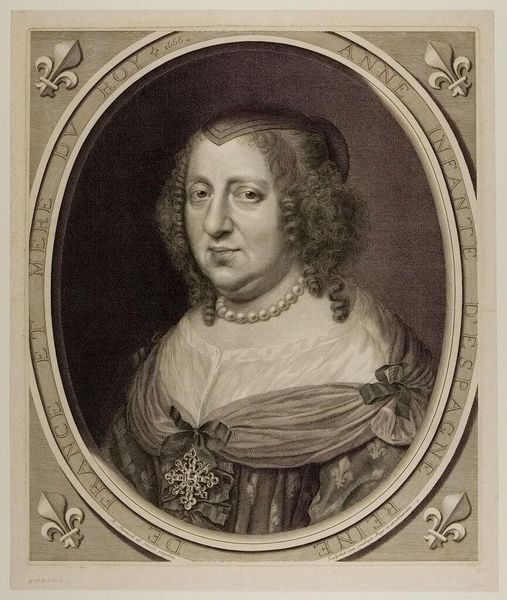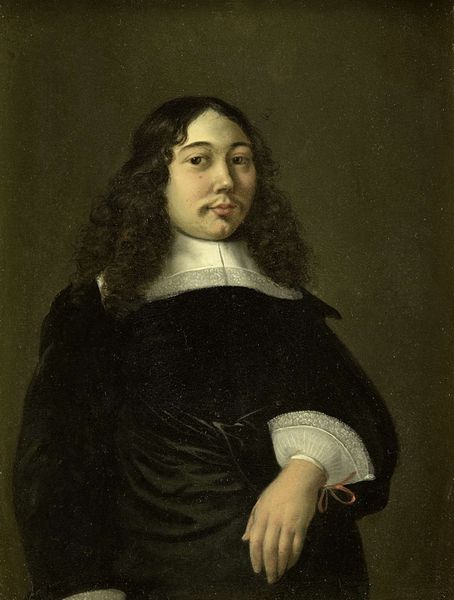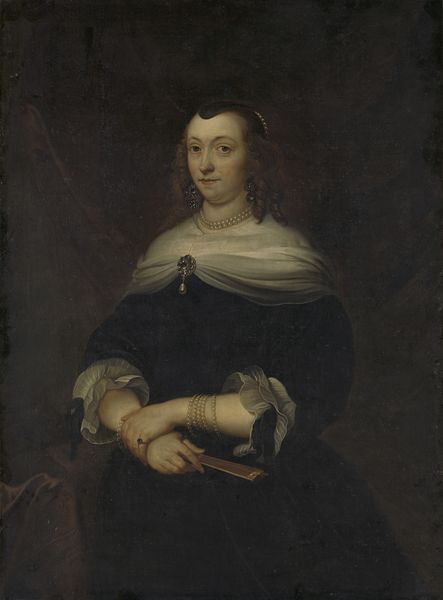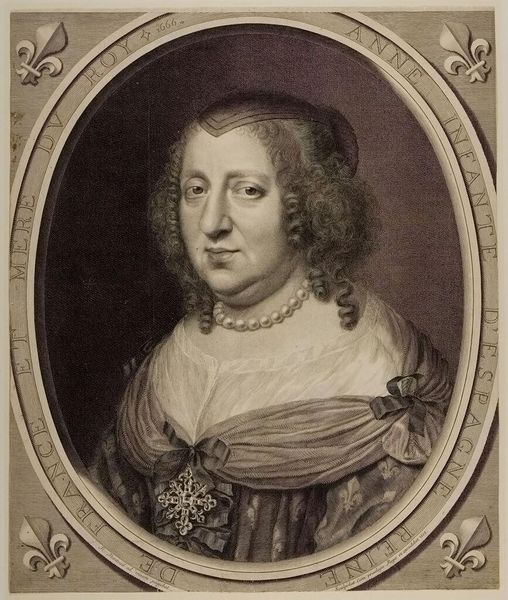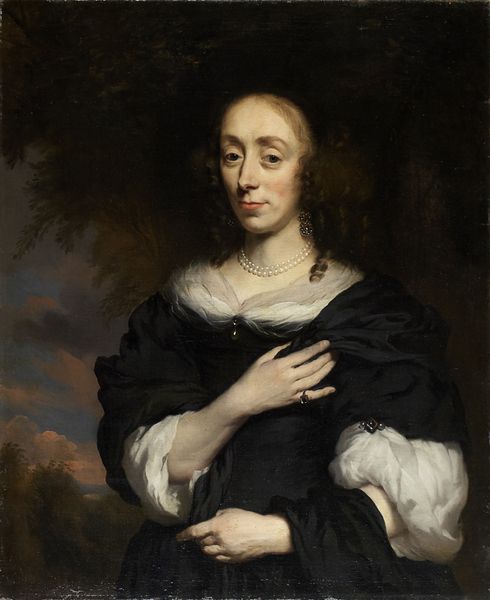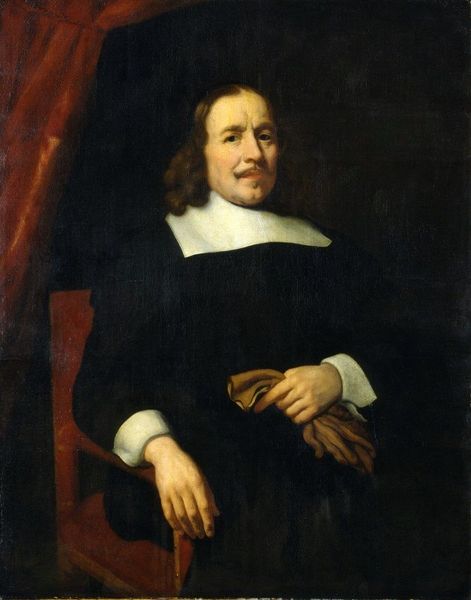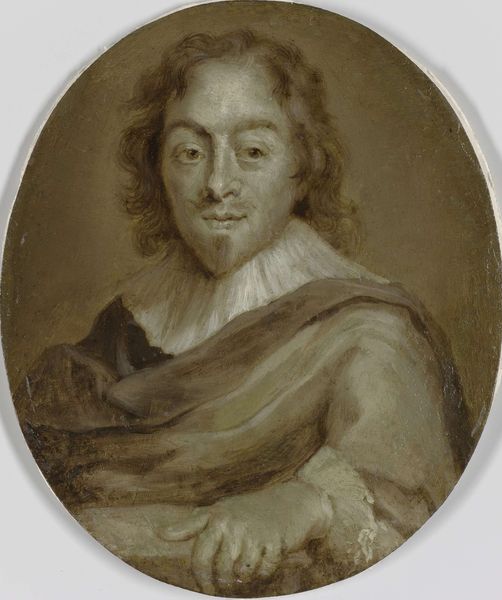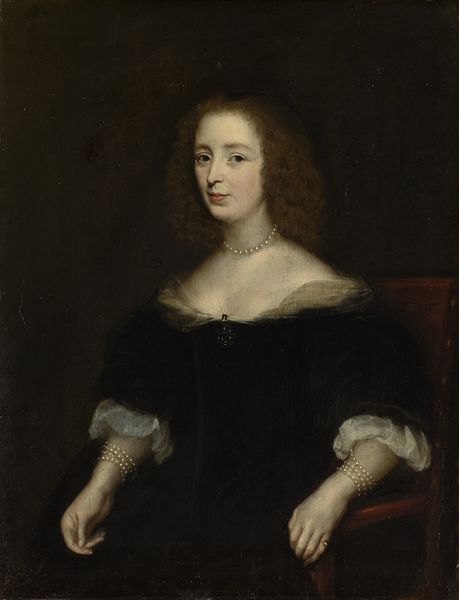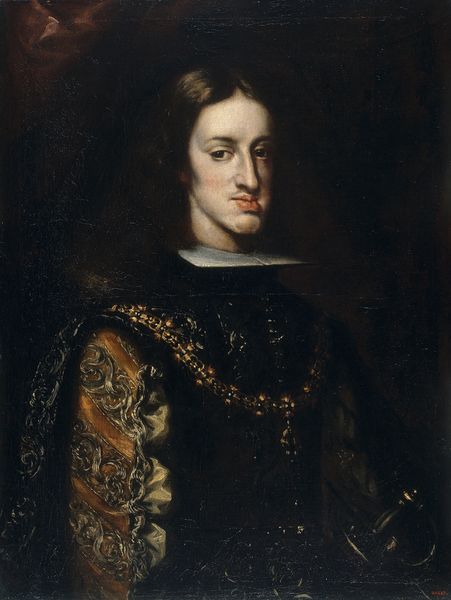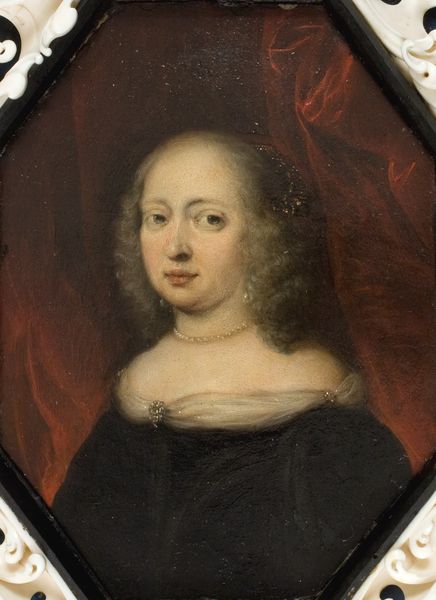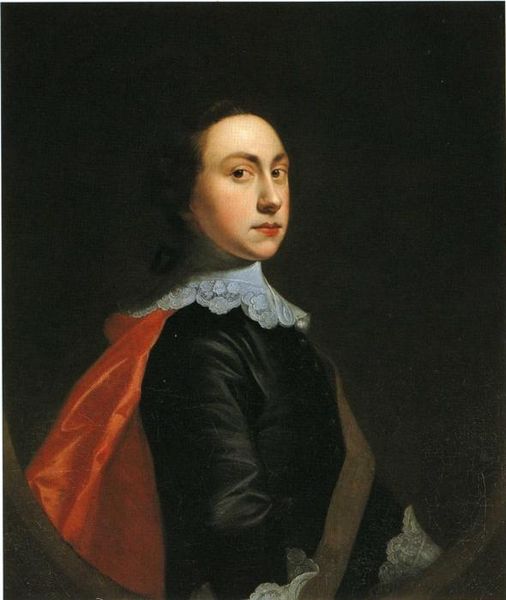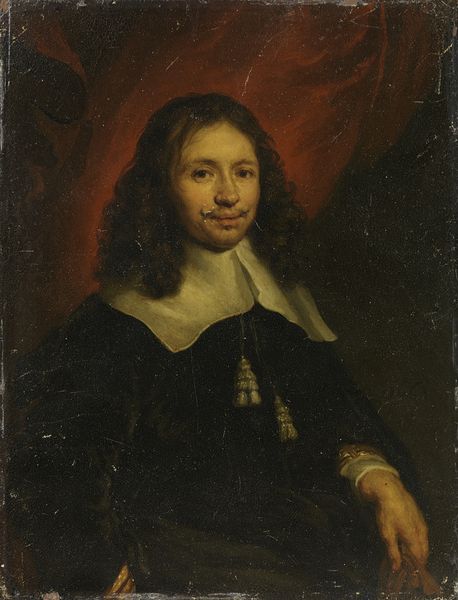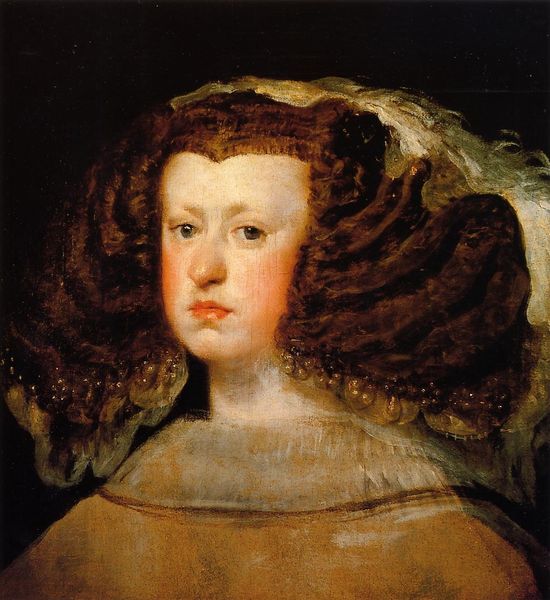
painting, oil-paint
#
portrait
#
figurative
#
baroque
#
dutch-golden-age
#
portrait
#
painting
#
oil-paint
#
figuration
#
realism
Copyright: Public Domain: Artvee
This is a portrait of a woman rendered by Nicolaes Maes, likely in the mid-17th century, using oil on canvas. The pearl necklace, a symbol of purity and wealth, encircles her neck. A motif that goes back to antiquity. Consider how the Romans adorned statues of Venus, the goddess of love, with pearls, believing they enhanced beauty and bestowed favor. But observe how the meaning shifts through time. In Renaissance portraits, pearls might signify marital status or allude to the Virgin Mary's purity. Here, in the Dutch Golden Age, the pearl retains its association with affluence, yet the somber tones and the woman's reserved expression suggest a more complex narrative. What is she thinking? The pearls are a signifier that the woman's identity and inner life are, to a degree, concealed. It's as if the portrait is a mask that hides a deeper, more personal story. This tension, the push and pull between display and concealment, engages us on a subconscious level, sparking a deep sense of psychological intrigue. In art, as in life, symbols evolve, and we, the viewers, are left to piece together the puzzle of their ever-changing meanings.
Comments
No comments
Be the first to comment and join the conversation on the ultimate creative platform.
